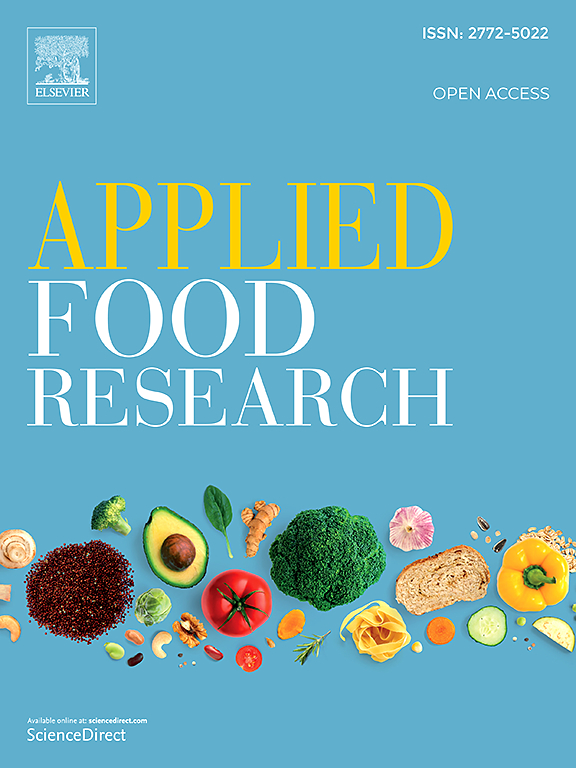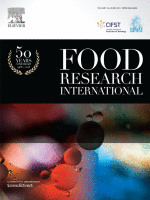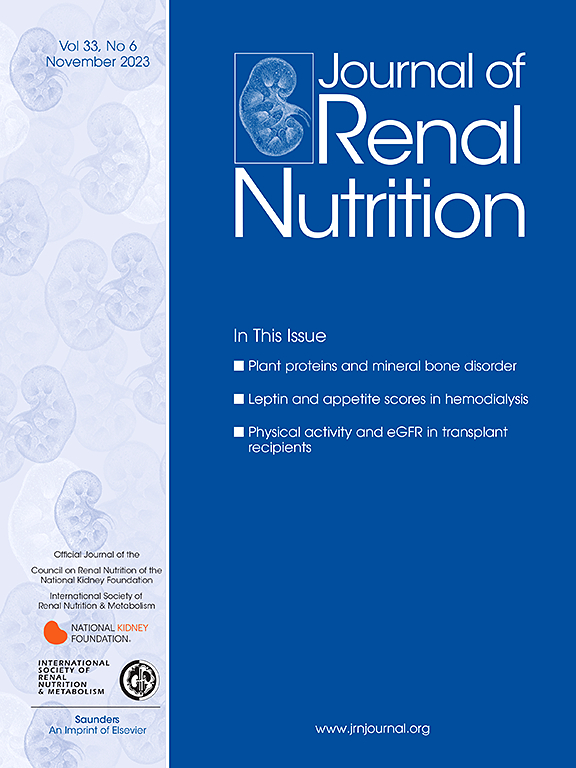Soybean »
Soy Milk
How to submit an article:
- Registered users can submit any published journal article that has a unique DOI (Digital Object Identifier) name or link to Research Hub.
- For example, you can paste the full DOI link:
https://doi.org/10.1109/5.771073or just the DOI name:10.1109/5.771073into the field above and click submit. - The person who is first to submit a valid article to Research Hub will forever be credited for it, and every article submission earns you +6 Research Points.
Also known as: Soymilk
Published research studies are articles that present the findings of original research that has undergone a peer-review process and has been made publicly available in scholarly journals, books or other media.

Estrogenic activity of fermented soymilk extracts and soy compounds
2023 Dec Applied Food Research Nishi K, Imamura I, Takemoto T, Iga K, Kiyama R
The study demonstrates the estrogenic activity of soymilk extracts and soy compounds, with greater activity observed after fermentation, highlighting complex mechanisms at the transcription level. RNA-sequencing analysis revealed up-regulation of genes related to cell division/cell cycle and DNA replication/DNA repair and down-regulation of genes associated with autophagy, suggesting enhanced cell proliferation. The estrogenic activity of soymilk extracts and soy flavonoids, especially after fermentation, offers potential pharmacological benefits, including bone protection, cancer chemoprevention, neuroprotection, and the treatment of menopausal syndromes.
Experimental Study Menopause Soy Milk
Effect of fermented soy beverage in aged female mice model
2023 Jul Food Research International Ruiz de la Bastida A, Langa S, Peirotén , Fernández-Gonzalez R, Sánchez-Jiménez A, Maroto M, et al.
Animal Study Experimental Study Soy Milk Ovarian Function MenopauseFermented soy milk significantly improves lipid profiles and fertility in a model of premenopausal mice, due to increased bioavailability and action of beneficial compounds.

Plant-Based Milk Alternatives and Risk Factors for Kidney Stones and Chronic Kidney Disease
2022 May Journal of Renal Nutrition Borin JF, Knight J, Holmes RP, Joshi S, Goldfarb DS, Loeb S
The study found that oat, macadamia, rice, and soy milk compare favorably with dairy milk in terms of kidney stone risk factors, while almond and cashew milk have more potential stone risk factors. Coconut milk may be a favorable substitute for patients with chronic kidney disease based on low potassium, sodium, and oxalate.
Experimental Study Coconut Milk Kidney Stone Chronic Kidney Disease Plant Milk Cashew Milk Nuts Almond Milk
Effect of Fermented Soymilk-Honey from Different Probiotics on Osteocalcin Level in Menopausal Women
2021 Oct 13 Nutrients Desfita S, Sari W, Yusmarini Y, Pato U, Zakłos-Szyda M, Budryn G
Clinical Study Probiotic Honey Menopause Osteoporosis Soybean Soy MilkConsuming soymilk-honey fermented with a specific type of probiotic significantly reduces osteocalcin levels, which may impact bone health in postmenopausal women.
Research insights are moderated by the Research Hub team and offer an at-a-glance overview of interesting research findings.

2023 Food Research International
Fermented soy milk significantly improves lipid profiles and fertility in a model of premenopausal mice, due to increased bioavailability and action of beneficial compounds.
Animal Study Menopause Ovarian Function
Effect of fermented soy beverage in aged female mice model
Ruiz de la Bastida A, Langa S, Peirotén , Fernández-Gonzalez R, Sánchez-Jiménez A, Maroto M, et al.

2021 Nutrients
Consuming soymilk-honey fermented with a specific type of probiotic significantly reduces osteocalcin levels, which may impact bone health in postmenopausal women.
Clinical Study Honey Menopause Osteoporosis Probiotic Soybean
Effect of Fermented Soymilk-Honey from Different Probiotics on Osteocalcin Level in Menopausal Women
Desfita S, Sari W, Yusmarini Y, Pato U, Zakłos-Szyda M, Budryn G
Review Articles
Review articles summarise and critically evaluate the current state of research on a specific topic or field by synthesising multiple primary research studies.
Clinical Trials
Clinical trials are research studies that involve people and are conducted to evaluate the safety and efficacy of new treatments or interventions, such as drugs, medical devices, or behavioural therapies.
Study Protocols
Published study protocols are detailed plans that outline the objectives, methodology, statistical analyses, and organisation of a research study that have been made publicly available for others to review and use as a reference.
Presentation Slides

Animal Study
Fermented soy milk significantly improves lipid profiles and fertility in a model of premenopausal mice, due to increased bioavailability and action of beneficial compounds.
Ruiz de la Bastida A, Langa S, Peirotén , Fernández-Gonzalez R, Sánchez-Jiménez A, Maroto M, Antonio Curiel J, Guillamon E, Arqués JL, Gutiérrez-Adán A, Landete JM

Clinical Study
Consuming soymilk-honey fermented with a specific type of probiotic significantly reduces osteocalcin levels, which may impact bone health in postmenopausal women.
Desfita S, Sari W, Yusmarini Y, Pato U, Zakłos-Szyda M, Budryn G
Executive Summary
Write an executive summary in the form of a blog article on the topic of "Research into Chinese medicine treatment for Soy Milk" summarising the research below and using language that can be easily understood by patients and avoiding medical jargon using a professional and caring tone of voice.
Write an executive summary in the form of a blog article on the topic of "Researched Chinese medicine treatments for Soy Milk" summarising the research below in an objective and easy to understand way, and using language that can be easily understood by patients. Group the article into Chinese medicine treatments first, followed by nutrition and other treatments. Avoid using medical jargon and use a professional and caring tone of voice.
Write me a concise but easy to understand executive summary on the topic of "Chinese medicine treatments for Soy Milk" based on the following research that I will give you. Your summary should be 2 paragraphs long in Australian English spelling and include references to the studies.
A Animal Study published in 2023 in the journal Food Research International found that Fermented soy milk significantly improves lipid profiles and fertility in a model of premenopausal mice, due to increased bioavailability and action of beneficial compounds. In this study, non-fermented soy beverage (SB) and soy beverage fermented with Bifidobacterium pseudocatenulatum INIA P815 (FSB) were tested on both cyclic and acyclic C57BL/6J aged female mice which mimic premenopause and menopause conditions respectively. Over a period of 36 days, the beverages were given to the mice and the variables measured included body weight, lipid and inflammatory profile and fertility. In addition, hepatic gene expressions were examined and the faecal microbiota composition was assessed to further understand the effects of the two beverages. In the results, FSB displayed a higher concentration of the aglycones daidzein and genistein as well as increased antioxidant activity due to the fermentation process. The cyclic mice that were given FSB experienced a significant rise in the number of oocytes and zygotes retrieved. It was also noticed that the triglycerides were lower in the groups that were given FSB compared to the SB groups. However, it was found that neither of the treatments significantly influenced the inflammatory profile or caused a major shift in intestinal microbiota or hepatic gene expressions in either of the groups. Still, it was observed that FSB had more health benefits than SB with regards to the lipid profile and fertility in the cyclic mice, likely due to the increased bioavailability and bioactivity of compounds due to fermentation.
A Clinical Study published in 2021 in the journal Nutrients found that Consuming soymilk-honey fermented with a specific type of probiotic significantly reduces osteocalcin levels, which may impact bone health in postmenopausal women. The researchers conducted a 90-day pre-post quasi-experimental study with control design on 54 postmenopausal women who were divided into three groups. The first group consumed regular soymilk, the second group consumed soymilk-honey fermented with a specific sub species of probiotics, and the third group consumed soymilk-honey fermented with a different type of probiotics. Each participant consumed 100 mL of their respective drink per day for 90 days. Measurements of blood serum osteocalcin were taken at the start and end of the study, alongside assessments of each participant's overall health status, including total cholesterol, blood glucose, and uric acid levels. In terms of results, it was observed that the group consuming the soymilk-honey fermented with the particular probiotic showed a significant decrease in their osteocalcin levels after the 90-day period. This indicates that this specific fermented soymilk-honey beverage might have a positive impact on bone health in postmenopausal women.
Moderation Tools
Topic
Sign In
Users not signed in are limited to viewing the 5 most recent items of content.